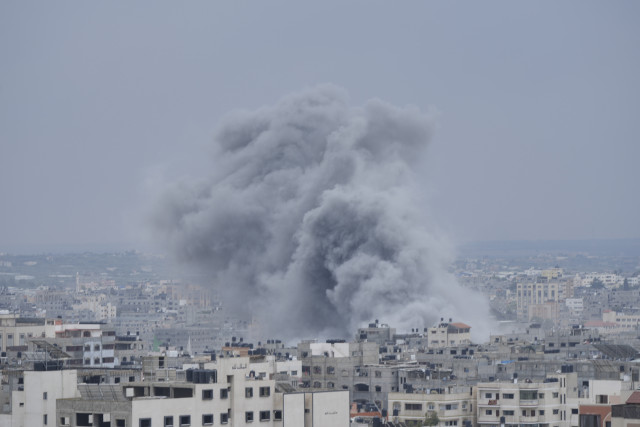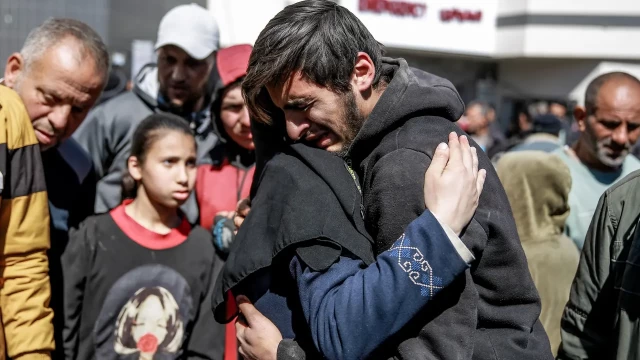Geopolitical Tremors: Hamas Launches Historical Assault on Israel
- Posted on October 14, 2023
- International Conflict and Politics
- By Arijit Dutta
- 499 Views
In a chilling echo of history, on October 7, 2023, Israel found itself under a relentless Hamas assault, reminiscent of the surprise attack by Egyptian and Syrian armies in 1973. This time, it coincided with the religious day of Simchat Torah, a day of rest and reflection for the Jewish people, taking them off guard.
 Image Source -www.wjtv.com
Image Source -www.wjtv.com
In a chilling echo of history, on October 7, 2023, Israel
found itself under a relentless Hamas assault, reminiscent of the surprise
attack by Egyptian and Syrian armies in 1973. This time, it coincided with the
religious day of Simchat Torah, a day of rest and reflection for the Jewish
people, taking them off guard.
On this fateful day, between 1000-2000, Hamas 'terrorists infiltrated Israel, breaching the high-tech border fence with Gaza, challenging
Israel's formidable security perimeter. Some even used powered gliders and
drones for reconnaissance. This audacious operation, dubbed "Al-Aqsa
Storm" by Hamas, was retaliation for perceived Israeli offenses against
women, the desecration of the Al-Aqsa Mosque, and the enduring Gaza siege.
As the assault unfolded, civilians in border towns and
settlements endured horrifying attacks, leading to over 260 casualties,
including foreigners. Additionally, approximately 150 hostages, including
senior defense officers, were taken. The death toll surpassed 1,200, and
thousands were injured. The hostages are poised to become a deterrent for
Israeli military action in Gaza.
Israel responded with fury, launching a relentless
bombardment on Gaza. Over 2,000 Palestinians lost their lives, and several
thousand were injured. Israel declared war, mobilizing its defense forces and
imposing a cordon sanitaire around Gaza. The military operation, named "Operation
Swords of Iron," aimed at eradicating Hamas and was accompanied by a call
for civilians to evacuate Gaza.
The international response was divided, with the US
supporting Israel and Iran vocally backing Hamas. Muslim countries rallied
behind Palestine, while China and Russia called for a ceasefire. Turkey and
Qatar, historic supporters of Hamas, offered mediation.
The timing of the attack raised questions, considering the historic "Abraham Accords" signed in 2020, which normalized relations between Israel, the UAE, Bahrain, Sudan, and Morocco. Saudi Arabia, under US pressure, remained hesitant. Meanwhile, Israel's contentious policies in the West Bank and incursions into the Al Aqsa Mosque stirred tensions.
Also Read: UBS Downgrades State Bank Of India's Rating, Cites Concerns Over Future Performance
Iran's opposition to the Abraham Accords and its support
for Hamas and Hezbollah added complexity. Though Iran's involvement in the
attack was suspected, no concrete evidence surfaced. Iran's warning against
normalizing Israel-Saudi ties hinted at broader implications for the Muslim
world.
These geopolitical dynamics might have driven Hamas to
launch its assault, exploiting growing international concern about Gaza's
humanitarian crisis and pressuring Israel to cease its attacks. As the
international community re-engages with the Palestinian issue, Hamas may see
its objective realized, albeit at a grave cost in civilian lives.
The world watches with bated breath as Israel grapples
with this unprecedented attack while international stakeholders attempt to
navigate the complexities of the Middle East conflict.




